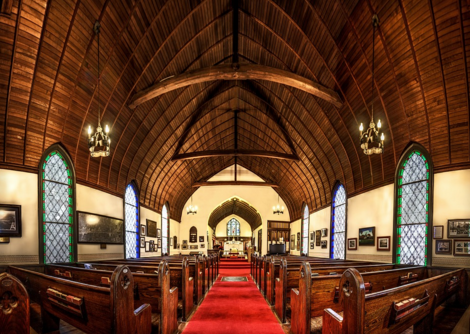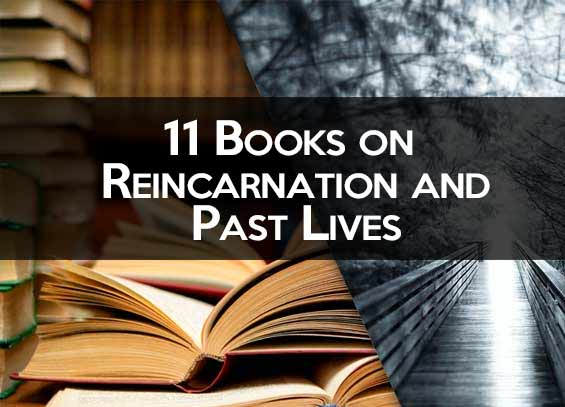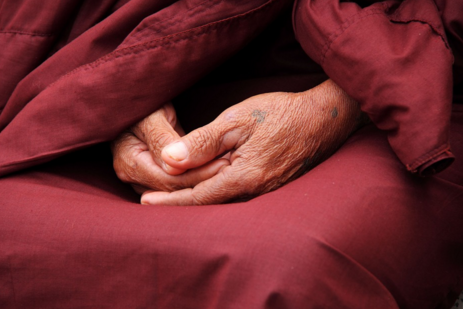What Religions Believe In Reincarnation? This is a very frequently asked question, so in this article we will summarize beliefs and concepts regarding the major religions around the subject of reincarnation. Many people wonder “who believes in reincarnation?” as if it were something very obscure, but it may be interesting to note that, for example, the early Christians also believed in reincarnation. To prepare this summary of religions that believe in reincarnation I have relied on the work on this subject that David Sentinella wrote in his book “Hereafter”, in addition to many other sources.
What religions believe in reincarnation?
Ancient Traditions
Shamanism: Due to its antiqueness, it definitely deserves the first place. We can include various beliefs throughout the world, with many commonalities. One is the existence of a spirit world, which intervenes in our world and which can be accessed by shamans. Regarding reincarnation, the issue seems clear: we are spirits, and have come from our home (the spiritual world) to occupy our physical bodies, in order to learn along different lives. At the moment of death, the spirit survives and returns to the spiritual world where it meets with the other dead.

Druidism: The Celtic Druids believed in the existence of several worlds through which one could travel in altered states of consciousness. Mediums were able to communicate with their ancestors, and believed in the immortal soul or spirit that dwelt within our body. For the Druids, reality is the spiritual world. The soul passes through three states: First, the animal. Then another in which the soul embodies numerous times in different worlds. The third is a more blissful state in which one lives in happy worlds, let go of the body influences and reincarnations are finished.
Norse mythology shows that the Nordic also believed in reincarnation, and there is evidence that proves the Vikings believed in it.
The Sumerians believed that after death, the soul must endure a difficult journey to reach a kind of hell where it would remain for eternity. No rebirth or reincarnation.
Zoroastrianism: It states that the soul remains three days and three nights beside the dead body. During this time all past actions are presented to the soul in a relentless trial. If the result is negative, the soul will fall to a hellish abyss. At the end of time there will be a kind of apocalypse in which the good will win and the dead will rise (like the Apocalypse in the Bible).
Voodoo: It is one of the oldest cultures, originally from the people who were taken as slaves from West Africa and later influenced by Christianity and possibly Celtic polytheist religions. There are deities, and people may communicate with them. Although voodoo does not have any basic doctrines, it supports belief in reincarnation and gives importance to the spirits of dead people.
Judeo-Christian Religions
Judaism: oldest of the three great monotheistic religions. Death means separation of soul and body, the passing from a world of appearances, a transit, training and learning, to a spiritual world that does not depend on matter (world of truth). As we live, we might or not enjoy the infinite pleasure. Reincarnation is not officially recognized, although it appears in the Kabbalah. The immortality of the soul is recognized through the resurrection, and even some Jewish currents believe in reincarnation of souls. There doesn’t seem to be a hell, but a place of purification where those who have done wrong remain for a while.
Keep reading: Do Jews believe In An Afterlife?
Christianity: Death is the consequence of the original sin of Adam and Eve, which is the result of the desire for autonomy of human beings, causing the breakdown of the relationship between God and man. The resurrection of Christ frees man from sin and death, and is therefore the basis of the Christian faith. This resurrection opens the door to the resurrection of all human beings at the end of time. The death is therefore the separation of the body (physical part), the soul (the principle of life, capable of emotions, feelings and passions, capable of reasoning and analyzing) and spirit (outermost part of the soul). The resurrection involves the restoration of the whole being (its three parts, including the physical part). It is unclear whether eternal life begins with the death of the body, or the resurrection at the end of time. Most Christian factions believe that a soul without consciousness survives the body.
It is significant, however, that in the early days of Christianity, reincarnation was accepted. The epistle of James speaks for example that our language can put back in motion the wheel of rebirth. Also in Origins and St. Augustine reincarnation is mentioned. In the gospels there are more significant references: “In truth, if a man be born again, he can not see the kingdom of God”; “It is true, among all the sons of women there is none greater than John the Baptist. And if you want to understand, he is the same Elijah who was to come. He who has ears to hear, let him hear “; “I will send the Comforter. I have yet many things to say unto you, but ye can not now know. However, when He, the Spirit of truth, has come, He will guide you into all truth.”
Keep reading: Do Christians Believe In Reincarnation?

Outside the Bible it is written that Jesus and the early Christians believed in reincarnation. The view of Christianity is not that souls reincarnate again and again, but that they return back home. Transmigration of souls, however, is not accepted, as souls always reincarnate in a new human being. It was the Emperor Justinian who, summoning a synod in Constantinople in 543, condemned the doctrine of reincarnation (to what the Pope at the time opposed). However, the emperor’s personal opinion prevailed since in the absence of the Pope, who did not attend the synod, no one dared to contradict him.
Gnosticism: It is a set of philosophic and religious currents that are close to Christianity of the first centuries, but was later declared heretical. It advocates the separation between matter and spirit. Only through awareness of our own spirit, of its divine character and the truth about its nature we can attain salvation. Some currents of Gnosticism believed in the cyclical return of souls to the prison of matter through reincarnation. The cycle of rebirths was broken by the gnosis (the equivalent of enlightenment in Eastern religions).
Islam: Islam advocates that death is not a punishment, it is not bad, is not destruction, it is simply a stage on the road of life, a way to another life after physical resurrection at the end of time. Upon death, man reaches hereafter and his soul remains in an intermediate stage until doomsday, where he will be judged for his sins. Good and bad deeds will be weighed, and his soul will spend life in heaven or hell.
Keep reading: Do Muslims Believe in Reincarnation?
Eastern Religions

Brahmanism: One of its cornerstones is the reincarnation or samsara. The soul evolves through reincarnation according to what good or bad deeds have been done in a previous life (karma). At death the soul leaves the body and is brought to trial, and according to this balance, it can be reincarnated in a higher existence (heaven), lower existence (hell) or intermediate (human life). The release of the wheel of reincarnation is achieved when the soul (through yogic or ascetic practices) has completely evolved, with no more karma to “clean” and no need to reincarnate, and the soul merges with the universal soul.
Jainism: The soul is potentially divine and can reach this goal through ascetic and purifying practices. According to its actions, the soul, subject to the wheel of reincarnation, can be reborn with a demonic, animal, human or divine status. The soul loses its omniscience (ability to know everything) because of its corruption, attachment to material things, aggression, lying, etc. To recover its original wisdom it must get rid of the karma and attain knowledge, thus reaching nirvana where it will be free from suffering.
Vedism: It’s a very ancient religion, disappeared before Hinduism. It was based on the 4 most ancient texts of India: the Vedas (Sanskrit, “knowledge”), who were allegedly communicated orally by God to scholars in the past. The Vedas assert the immortality of the soul and the successive reincarnation. They also state that our current situation in life is a consequence of the deeds we have done in previous lives.

Hinduism: More than a religion, it is a set of beliefs. Hindus believe in reincarnation or transmigration of the souls, that is, when a person dies reincarnates, but not necessarily in a human being (this depends on your karma status, positive or negative). To end this cycle and meet with the universal soul, we must achieve perfection, reaching the truth and renouncing to everything else, thus overcoming the weight of karma. Our soul is the reflection of God, it is also God.
Keep reading: Do Hindus Believe In Reincarnation?
Sikhism is a type of Hinduism in which it is accepted that the soul has to transmigrate from body to body as part of its evolution, to achieve union with God through purification of the spirit. If the union is not reached, it continues reincarnating forever.
Buddhism: A more modern concept of Brahmanism, and one of the largest religions of the world (although it is rather a philosophy). It offers a way of life where one can end suffering through effort and meditation. Reincarnation (or rebirth) is a mainstay of Buddhism. Death, until the soul reaches the nirvana, is only preceding a new reincarnation. To escape this wheel of reincarnations, we must get rid of attachments and desires. Buddha however, denied the existence of something permanent in the person, as a soul, to occupy different bodies, and therefore there are Buddhists who reject reincarnation.
Keep reading: Do Buddhists Believe In Reincarnation?
Tibetan Buddhism is a type of Buddhism that should be mentioned, as it has a sacred book, “The Tibetan Book of the Dead”, or Bardo Thodol, which is a detailed “instruction book” to guide us during death and throughout the process that follows (in the spiritual world) to reach the next reincarnation. This book was written by many generations of monks, through astral projection, they managed to enter the process and get to know it intimately.

Confucianism: The souls of the dead live in heaven with Shangdi deity. Reincarnation was incorporated in Confucianism through the influence of Buddhism, as Confucianism, Taoism and Buddhism were very integrated into the Chinese tradition. It is said that the Chinese were Confucian to celebrate national holidays; if they were sick they would summon the Taoist sages who provided healing herbs and were connected to the spirits; and in the end of their life they would call Buddhist priests who believed in reincarnation.
Taoism: initially they did not believe in life after death. The aim was to achieve knowledge and immortality, not of the soul, but of the physical body.
Shinto: A form of naturalistic animism (everything is ensouled) who venerated ancestors. The man is a milestone where the spirit resides. It is something that survives the death of the body and that is eternal, the mitama, the essential part of man that lives forever in the afterlife. There is a hell where the dead live a life similar to Earth.
Shinto is a mixture of animism and shamanism, and believe in reincarnation as spirits or souls that relate to the living. It has been heavily influenced by Buddhism.
Native American Religions

The Aztecs believed that reality was on the other side of death. The circumstances of death determine the fate of the spirit in the afterlife. If died in battle, on the altar of sacrifice or during childbirth it is supposed to join the Way of the Sun in its eternal journey through the heavens. If the death was by drowning, the soul would go to the Paradise of the Waters, where life was entirely happy. Other kinds of death involved going to the Land of the Dead where one would endure a dangerous journey that, if succeeded, the soul would access a coveted and well deserved eternal rest.
The Mayans believed that death was a step into a very similar place. The soul goes to the underworld, and then is reborn in another human being without keeping any memory of the previous life or the time spent in the underworld.
The Incas believed in life after death, where the dead lived a new life, right next to the gods and the souls of the righteous men, or in the hellish world of the dead with the evil beings.
Ancient Religions
The Greek believed that at death, something became detached from the body and continued an independent life, something like an ethereal double that could not be touched, but could move by itself, think and desire. Plato described in “Phaedrus” how the human soul, according to the degree of discovery of the truth that it had reached, would be born in one type of body or another. Each life is a test where souls are perfected.
One of the old Orphic hymns reads as follows: “The wise love light and not darkness. When you travel the journey of Life, remember always, the end of the journey. When souls return to the light, after their sojourn on earth, they wear upon their more subtle bodies, like searing, hideous scars, the marks of their earthly sins – these must be obliterated and they go back to earth to be cleansed. But the pure, virtuous and strong proceed direct to the Sun of Dioysus.”
The Egyptian did not believe in reincarnation, but resurrection. They believed in life after death, but through a rebirth. What survives is not an intangible or immaterial being, but the body is reborn and the soul or spirit reenters a resurrected physical body. If the judgment of the gods is passed, it resides in heaven where there is no pain or suffering, but ecstatic and joyful sensations.
“O blind soul, arm yourself with the torch of the Mysteries and in terrestrial night you will discover your luminous reflection, your immortal soul. Follow the divine guide, letting him be your Genius. For he holds the key to your past and future lives.”
What Religions Believe in Reincarnation? Conclusions
In short, we see that the belief in reincarnation has been around since ancient shamanism and the Egyptian, Greek, Hindu, Buddhist and Roman religions. It is present in most Eastern religions (Vedism, Hinduism, Buddhism and Taoism) and the native American, African and Oceanic indigenous religions. The belief in reincarnation has survived as a heretic or unofficial position even within the Judeo-Christian religions (Christianity, Judaism and Islam) despite not being officially accepted.
Documentary: Theory of Reincarnation & Karma by Dr. Naval
This concludes our article answering the question about what religions believe in reincarnation. So if you have been asking yourself “I believe in reincarnation what religion is that?” I hope you now know a bit more about this interesting subject. Don’t forget to share with your contacts, and keep reading this website to learn more about reincarnation.







7 comments
What happened to the Druze religion? They believe in reincarnation yet no mention here. Should be added to the list.
If there is reincarnation (which I beleve), does your ancestry in this lifetime really matter?
No,heritage is irrelevant,unless previous life requires a certain heritage for continuity/finishing the learning.
F.ex. “General Custer “still being a drunk “native American”cussing the “white men “,who used to be native Americans.
Or the Nazis, who is now reborn as jews.
or the racist who is now born as the creed which used to be the target of hatred.
Your “ancestry” in every lifetime places you among people you previously knew and to whom you may be indebted… In other words, you owe them your presence in their lives and should desire to be of assistance to them as required, or as you are able to give. Nothing is “happenstance.” It was no accident you were placed where you are… All the concepts of reincarnation apply.
Past lives are very much part of the Scientology religion, not mentioned in the article, as you can see here:
Position on Reincarnation & Past Lives: Official Church of Scientology http://www.scientology.org.uk/faq/scientology-beliefs/reincarnation.html
This quote from the article, “In truth, if a man be born again, he can not see the kingdom of God” is not in the Bible. There is a quote that says, “I tell you the truth, unless you are born again, you cannot see the Kingdom of God.” Born again, here, means that one is born naturally by birth and then in the Spirit of God meaning repentance and faith in Jesus, as the son of God who breaks the wall of sin, and reconnects us to our Creator.
Christianity does not believe in reincarnation. The scripture quotes listed in the article are misinterpreted. John specifically denied being Elijah (John 1:21). In Mark 1:2-3, Mark quotes Malachi 3:1 and Isaiah 40:3 together to explain John’s ministry, introducing the quotations with the words, “As it is written in Isaiah the prophet.” These facts indicate that John saw the “voice” in Isaiah 40:3 as a humbler way of expressing the same functional role as described in Malachi, and that he realized he was to function in that role “in the spirit and power of Elijah.”
The book of James is mentioned in the article above saying “it speaks for example that our language can put back in motion the wheel of rebirth.” I could not find this in the Bible, however, James teaches people about being careful what they say to encourage them in their faith.
Lastly, the article above says this, “Outside the Bible it is written that Jesus and the early Christians believed in reincarnation.” There are hundreds of writings about Jesus and the early Christians that are not credible. That is why the Bible books were carefully assembled with strict criteria; in order to get only the authentic, God-breathed Word. This link has more basic info on it. http://www.focusonthefamily.com/faith/the-study-of-god/how-do-we-know-the-bible-is-true/how-did-we-get-the-bible
Your observations are correct. People don’t understand the meaning of “born again” and come to numerous false conclusions. When a man or woman is born the first time, they contain the seed of their earthly father. When a man or woman becomes born again by receiving the gift of holy spirit made available through the sacrifice of Christ, they receive the seed of God which will give them everlasting life(as a gift). Man is then made whole(sozo) as originally intended by God because he is now composed of body, soul and spirit. It is the Spirit that gives man everlasting life, not the soul.
Even dogs have a soul.
“Whosoever is born of God doth not commit sin; for his(God’s) seed remaineth in him: and he cannot sin, because he is born of God.” I John 3:9
The hardest part people have dealing with all of this is that is a FREE gift from God. How to receive that free gift is simple and does not include giving all your money to the church. It does require humility.
“That if thou shalt confess with thy mouth the Lord Jesus, and shalt believe in thine heart that God hath raised him from the dead, thou shalt be saved(sozo=made whole).” Romans 10:9,10
The great sacrifice of Christ,the SON OF GOD, is laid out well here.
ww.trinityortrickery.com